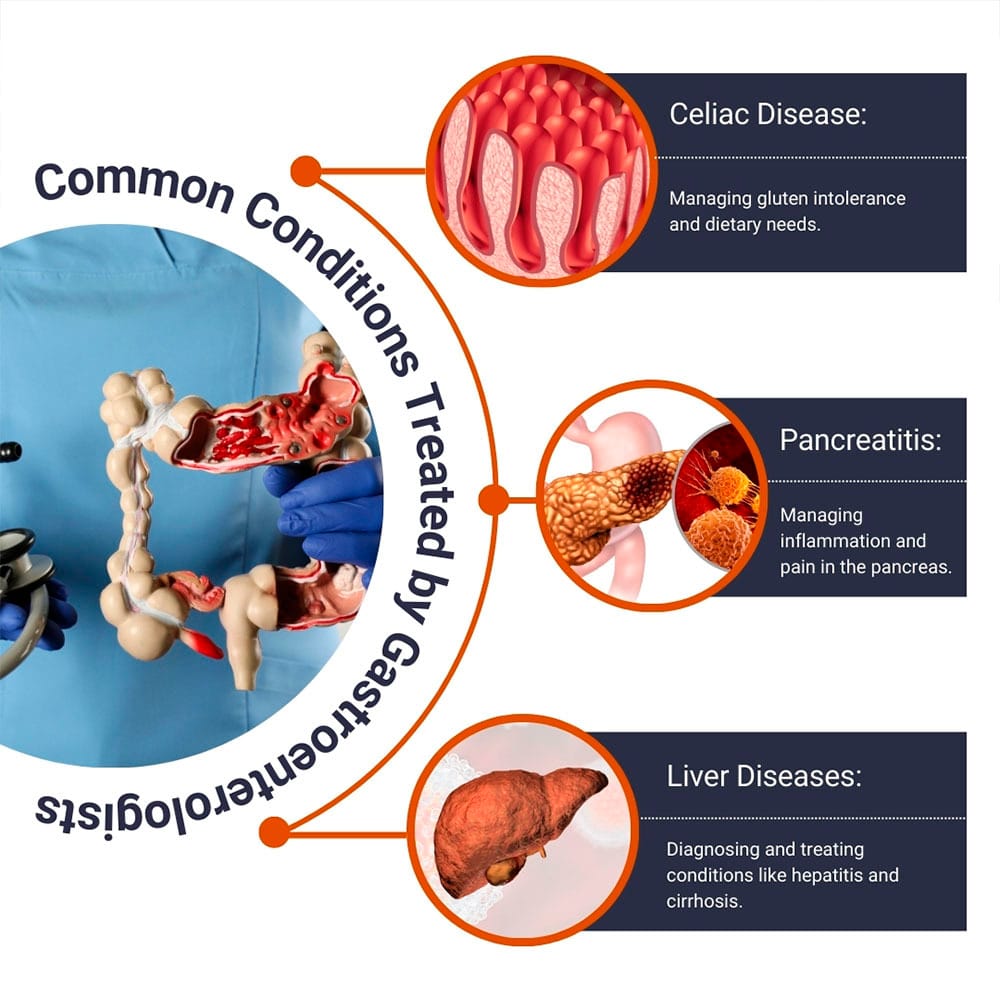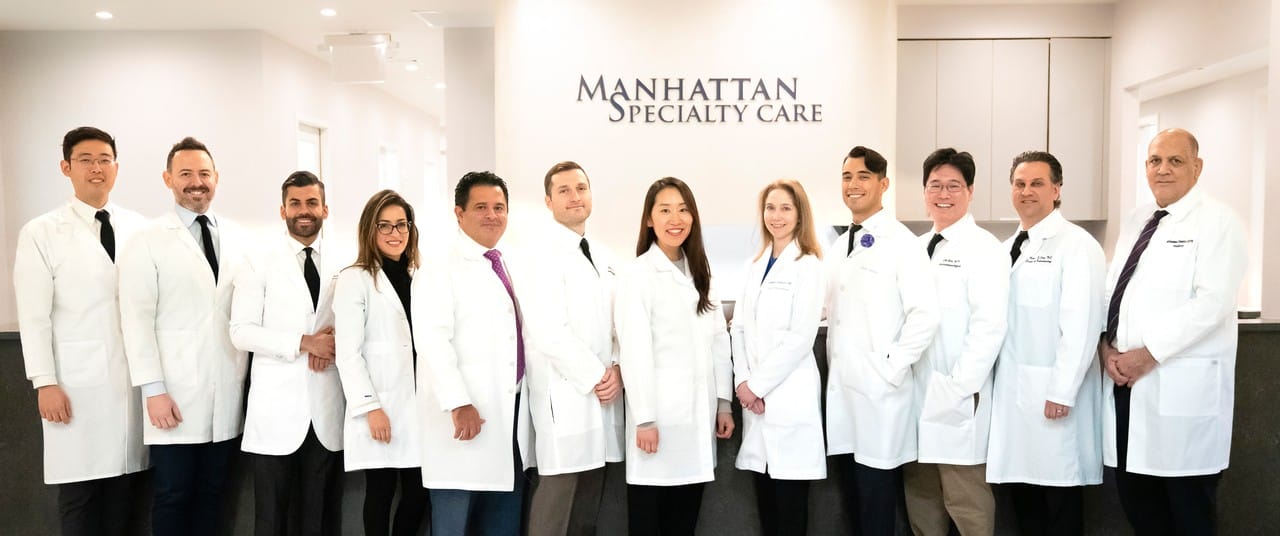Think of gastroenterologists as experts in the body’s whole digestive system. They know their way around everything from the esophagus and stomach down to the intestines, liver, and pancreas. The path to becoming one of these specialists isn’t a short one; they finish medical school and then spend years training in internal medicine, plus additional years focusing just on digestive health. They’re not only treating symptoms—they’re looking for the root causes of digestive issues that can disrupt everyday life.
Common Conditions Gastroenterologists Treat
Here’s a look at some of the more frequent conditions they manage:
- Celiac Disease: This is an autoimmune reaction to gluten that damages the small intestine. Gastroenterologists help diagnose it and guide patients in managing it, often working with dietitians to help create a gluten-free diet plan that feels doable.
- Liver Conditions: Gastroenterologists also address liver issues, such as hepatitis and cirrhosis. Often, they’re the first step in diagnosing and managing these conditions, though they might collaborate with liver specialists if needed.
- Pancreatitis: This is when the pancreas becomes inflamed, which can cause intense pain. A gastroenterologist can figure out what’s causing it and develop a treatment plan to help relieve symptoms.

Here’s What Happens During Your First Visit
Seeing a specialist can be a bit nerve-wracking, especially if it’s a new experience.
Here’s a quick overview of what you can expect when you first meet with a gastroenterologist:
- Initial Consultation: Your gastroenterologist will start by asking about your medical background, symptoms, lifestyle, and even family history. Don’t hesitate to mention anything—it all helps them piece together a complete picture.
- Physical Exam: They’ll usually perform a physical exam focused on your abdomen, checking for any tenderness or swelling that could signal a problem.
- Diagnostic Tests: Depending on what’s going on, they may suggest some tests:
- Endoscopy: A small, flexible tube with a camera lets the doctor take a look at the esophagus, stomach, and part of the small intestine.
- Colonoscopy: This is a screening for issues in the colon and rectum, and it’s commonly used for colorectal cancer checks or to investigate symptoms.
- Imaging Tests: Sometimes an ultrasound or MRI helps get a closer view of organs like the liver or pancreas.
Signs It Might Be Time to See a Gastroenterologist
How do you know when to go beyond your primary doctor?
Here are some clues:
- Persistent Heartburn or Acid Reflux: If heartburn becomes frequent or intense, it could be GERD, a condition that can damage the esophagus if left untreated or many other conditions. Best to get it checked out!
- Chronic Stomach Pain: Pain that sticks around or gets worse can signal anything from ulcers to gallstones or stomach cancer, and a gastroenterologist can help you get to the bottom of it.
- Blood in Stool: Blood can sometimes be from something as simple as hemorrhoids, but it’s always a good idea to check in with a doctor, as it might point to a more serious condition like colorectal cancer.
- Unexplained Weight Loss: Dropping weight without trying, especially if it’s paired with other digestive symptoms, should definitely be addressed with your gastroenterologist.
New Tools and Treatments in Gastroenterology
Today, gastroenterologists use an impressive range of tools and techniques that make procedures easier on patients than they used to be:
- Endoscopic Treatments: With new endoscopic tools, doctors can now treat polyps, ulcers, and even some cancers without major surgery, which often means faster recovery.
- Medications: Many digestive conditions can be managed with medication, whether it’s acid reducers for GERD or anti-inflammatory meds for IBD.
- Diet and Lifestyle Advice: Since a lot of digestive health is tied to diet and daily habits, gastroenterologists often work closely with dietitians to help patients figure out the best eating plan for their condition.
Gastroenterologists and Long-Term Health
These specialists aren’t just about treating what’s wrong—they’re also focused on preventive care. They look for early signs, develop long-term plans, and guide patients on managing chronic conditions to keep everything on track. Whether you’re dealing with current issues or simply want to stay proactive with your health, a gastroenterologist can play a huge role in keeping you well.
Wrapping Up
Knowing what gastroenterologists do and when to see one can be a big advantage. They’re not only there to help with stomach issues—they’re also essential in catching early warning signs and improving long-term health. If you’re dealing with ongoing digestive issues or want professional guidance, a gastroenterologist can be a great resource for getting you on the right track.
Partner with Manhattan Gastroenterologists for Your Digestive Health

Understanding when to see a gastroenterologist and knowing the full range of support they offer can make a big difference in your health journey. At Manhattan Gastroenterology, we’re dedicated not only to addressing symptoms but to enhancing long-term digestive health through prevention and personalized care. With state-of-the-art treatments and a team that collaborates closely with dietitians and other specialists, we provide comprehensive care to help you live comfortably and confidently.
Ready to take charge of your digestive health? Book an appointment today with Manhattan’s leading GI specialists for expert care and guidance.

